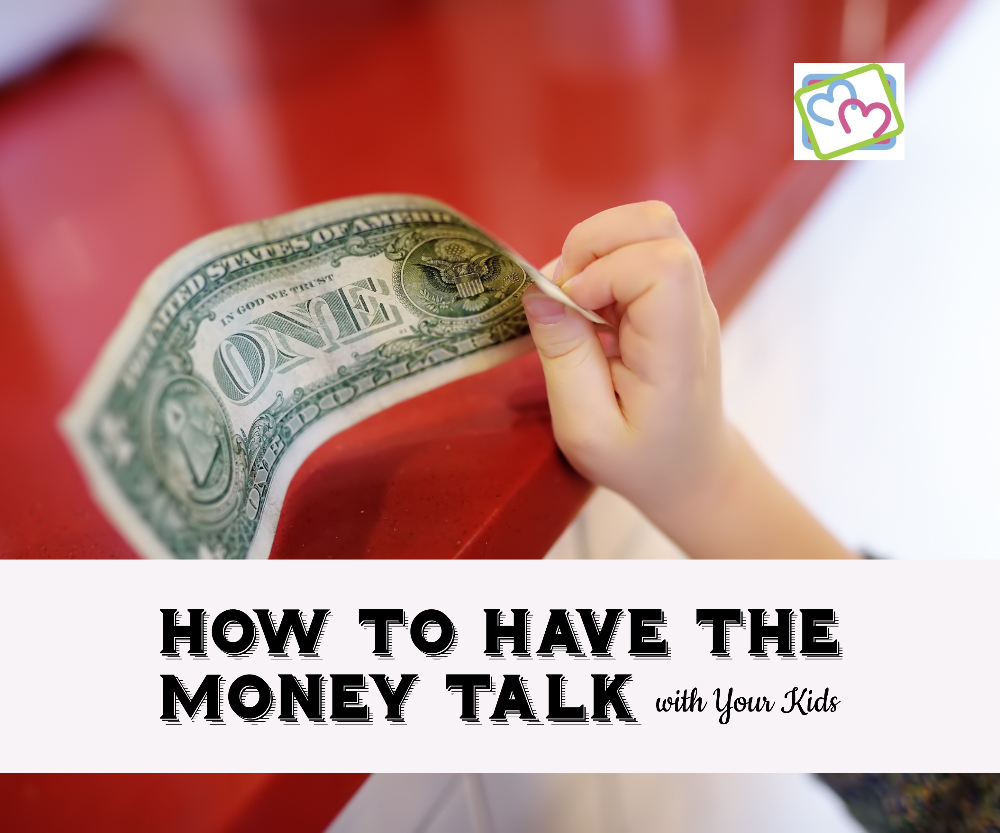Guest Blog by Wealthy Habits

Three ideas to keep in mind when talking to your kids about money
If your kids are teens or tweens, you probably talk to them about money in small ways just about every day. From the price of gas to the cost of new sneakers to the price of snacks, most parents and kids have quick conversations about money and how they spend it.
These conversations are part of life, but unless you connect them to a larger discussion, your children may actually end up with the impression that money management is a series of small decisions, instead of something that needs to be part of a larger plan to secure their financial futures.
Here are three ideas that you should keep in mind any time you are talking to your kids about money.
1. Share your money successes and mistakes.
Sure, it’s easy and exciting to talk about the times when you made great decisions. But sometimes kids listen more closely when adults, especially their parents, talk about their mistakes. You can tell them about that time you bought a stock strictly based on hype or the recommendation of a friend instead of researching the company. Or when you charged a splurge purchase on your credit card and then panicked about how you were going to pay your credit card bill the next month.
Additionally, admitting mistakes creates a “let’s figure this out” mindset as opposed to ignoring the problem, which only makes the problem worse. Discussing your failures shows your kids that it’s okay to make a mistake and that they can feel comfortable sharing and coming to you for advice. Mistakes are how we learn.

2. Include your kids in monthly family financial activities and decisions.
That doesn’t mean that you should let them play around with your financial software or hand over your online banking PIN. You can start with something simple, such as making a weekly meal plan and grocery list, including a goal for how much you want to spend. Then see how close your family comes to the goal and review your receipt for costs that were more than expected.
For older tweens and teens, you can share all of your family’s bills for the month. And I mean everything – the bills you expect and budget for and the unexpected bills that can wreak havoc on your budget. Allowing your kids to see the expense of things they likely take for granted makes them realize that being an adult isn’t as easy as you might make it look.
As part of that exercise, show them how much you are saving or contributing to a retirement account and how those contributions are “bills” that you’re paying to your future yourself. If you aren’t putting away money for retirement, savings or a 529 investment account for your kids, talk to your children about what changes your family could make to start saving each month.

3. Ask and listen, don’t preach.
If you are worried about talking to your kids about money, then take some pressure off yourself. The “money talk” doesn’t have to happen during a serious conversation that lasts for hours. And you don’t have to do all the talking.
Find topics that interest your teen or tween and set a time for a weekly discussion at the dinner table. Too often, our kids are getting their information about money from their friends; you want them to hear it from you first. Another option is using board games to teach important lessons. With the game Payday, they can learn how to set aside money to pay bills as they receive them. With Monopoly, they can get an idea of investing through the purchasing of property and collecting rent. Remember to find ways to relate actions in the game to real life.
If you still don’t feel like you are getting through to your kids, there are options. Wealthy Habits is a non-profit organization that focuses on teaching kids the skills to build better money habits. From online self-paced courses to week-long in-person summer camps, there is certainly something to fit your child’s learning style and schedule. Wealthy Habits has successfully taught over 11,000 students so rest assured that your child will be in good hands and will complete the programs with skills and a positive money mind-set that wasn’t there before. Our fun, engaging and knowledgeable instructors provide an interactive experience that our students enjoy.


